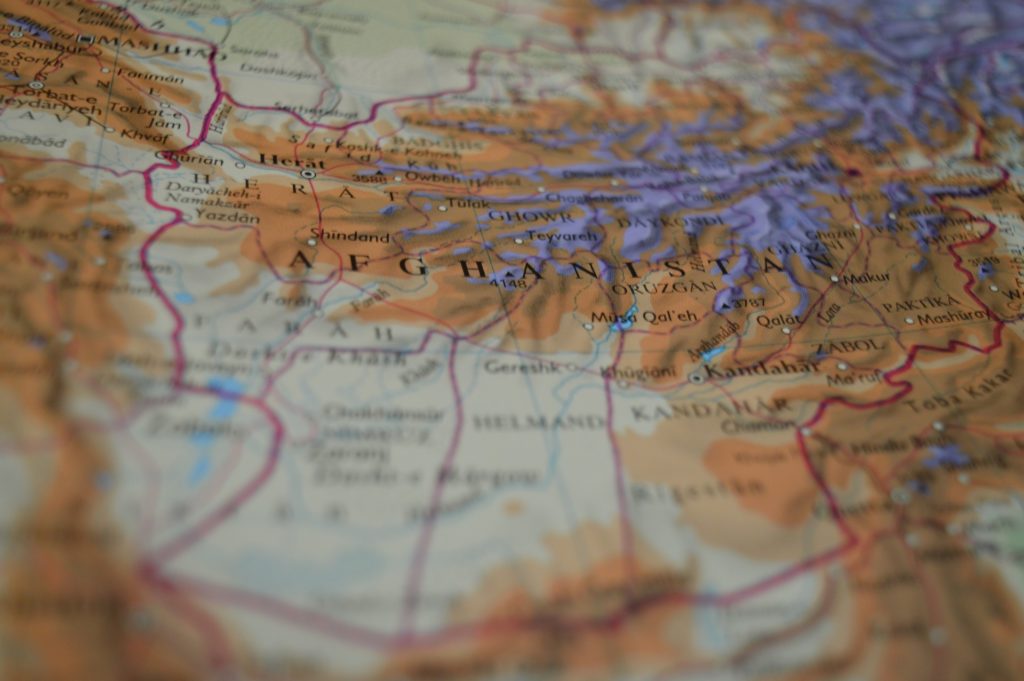It has been four decades since Afghanistan has been gripped with great insecurity, violence and uncertainty. Since 2001 when the US, NATO and countries outside NATO entered Afghanistan, the country has been a battle ground between the international forces and the Taliban and later ISIS, supported by local states. Due to reasons unbeknown to us, the Taliban were not fought in the place of their origin, rather in Afghanistan where they received help and support from their sponsors. Finally, the US thought it was fruitless to continue and started serious negotiations with the Taliban (although for the moment negotiations are stopped, but may resume at any moment.) However, the violence in different cities by the Taliban and ISIS has created doubts as to whether the future will bring security and peace to Afghanistan.
Afghanistan once called Khorasan had a glorious past. Hazarajat or Hazaristan was a great zone in Khorasan where the Hazara had ruled. In I880 when Amir Abdul Rahman with British support became the ruler of Afghanistan, he took issues with Hazaras. In his campaign he had the full financial and military support of the British who were afraid that the Russians would support the Hazaras against their presence in India and involvement in Afghanistan.
Abdur Rahman acted in the most brutal fashion hitherto unseen in the region. The residents and inhabitants of Hazarajat were massacred, the survivors driven out and their land was given to nomads and others from outside the region. Thousands of non-combatant Hazaras were captured and were sold to slavery.
Abdur Rahman ruled Afghanistan for 20 years and during his reign, he created so much division and animosity among various ethnic groups that Afghanistan suffers even today. Human rights of the oppressed people were trampled and they were forced to a second class status in the cities. Among those people, the Hazaras bore the brunt of the oppression and they were subject to humiliation and deprived of all basic rights. Their region was deliberately kept backward which is the same even after billions of dollars brought in by the international community for development of the country.
After Abdur Rahman, not only the policies of discrimination and injustice continued but at times exacerbated. It is for this reason that after one hundred and twenty years, there has been little changes in the fate of all the oppressed people in the country especially with regards to the Hazaras.
At some point in the past, there were opportunities for the oppressed people to grow and prosper but there was no equality in the process. As an example, the 1978 leftist coup was considered a milestone by some to relieve the people of the existing tyranny. The Hazaras like other oppressed people had the chance to be represented in the country, but the “revolutionaries’” actions were just to show a semblance of broadmindedness. In fact, the revolutionaries killed and imprisoned more Hazaras than their predecessors.
Soon after the Soviet invasion in 1979, an international effort was launched to save Afghanistan from the communists. With US political support and petro dollar financing from the region, Pakistan was turned into a frontline state against Afghanistan. The so called Mujahedin factions with help from Pakistan first tried to capture Jalalabad and establish a regional government, but with the plan’s failure, they tried to take Kabul. In 1992, Kabul was taken; UN plan for transfer of power from communists to Islamists was scrapped and a bloody civil war ensued; thousands of people were killed; and hundreds of thousands were forced to flee their homes. Kabul was leveled to the ground and factional fighting continued. In the winter of the same year, a combined force of the government and its ally took over the township of Afshar, a Hazara-Shi’ite enclave. After plundering the township almost every able bodied individual was killed or captured and the township razed to the ground.
In 1994 with the help and support of Pakistan, the hitherto unknown group Taliban took over Kandahar and two years later spread its dominance to most of Afghanistan.
In 1998, when the Taliban took over the city of Mazar-e-Sharif, they started a “week long killing frenzy” in which thousands of Hazara men, women and children were massacred that was akin to genocide. A lot of people were also captured and taken prisoner whose fate is unknown.
Similarly, in Yakawlang district of Bamiyan province, they brutally murdered the population of the local town and razed it to the ground. They blew up the statues of Bamiyan and carried out a scorched-earth policy, destroying the livelihood of the locals. By the same fashion, when they took over the Shomali area north of Kabul after a defeat from the Northern Alliance, they razed the beautiful age-old vineyard and took scores of civilians prisoner.
In 2001 with the help of US and international forces, the Taliban regime was toppled and a new era has dawned on Afghanistan where there is a republic in which all the people are supposed to be represented. The Taliban retreated and went back to where they had come from.
Is it correct to think that there is a real republic in the country; that the rulers are really elected by the people; that all regions and people have the same opportunity for progress; that the oppression, discrimination and injustice have ended; that the rights of all citizens are equally protected; that there is no discrimination in educational and other governmental institutions against any ethnicity; that the people are free to express their views; and that the women have the same right as men?
If we think impartially the answers to all those questions are negative. The elections are managed from outside and a ruler is brought from abroad; there are restrictions on regional elections to have a desired outcome; the security situation is so bad that there are daily reports and news of death and destruction; Taliban control large swaths of land; travel in the country is very dangerous and passengers are taken from buses daily and summarily killed. The street protests demanding justice are silenced by suicide bombers; mosques and places of worship are not safe and wedding ceremonies; are turned into mourning events.
Human rights are increasingly curtailed. Women have no equal rights and in government as well as other institutions they are subject to illegal and unethical treatments. Widespread discrimination in educational institutions is common and the Hazaras bear the brunt of the discrimination. Students who strive to achieve higher education are barred from reaching their goals. In rural Hazaristan, educational and health institutions are non-existent as are proper roads and other infrastructures. It is unfortunate that the international community in all these years of its presence in the country did not raise its voice to correct the situation.
In this atmosphere of injustice, inequality, discrimination, and mismanagement one cannot expect that in the near future the people of Afghanistan will enjoy all their basic human rights. It is not only the oppressed people but the ruling ethnic group as well that suffer from this mismanagement by the rulers. At times parts of these people suffered more than their fair share especially in the field of education.
It is imperative that foreign powers and neighbors end their proxy wars in Afghanistan and help in restoring justice in the country so that a just and tolerant administration would be made possible; where all the citizens enjoy equal rights; where killings and plunders and ethnic discrimination will end; and where people will work in unity for the country’s progress.
There has not been any credible census in the country since time immemorial so it is unclear what the real population is and of which what percentage each ethnic group constitutes? For decades, false and fake statistics are presented and the distribution of resources and wealth as well as authority and responsibility are apportioned based on these false statistics. There should be a genuine census held under international organizations especially the United Nations supervision so that the real proportion of different ethnic groups will be determined.
The efforts by the US to reach a deal with the Taliban will not bring peace to Afghanistan. If anything, they may exacerbate the situation further as the real stake holders-the government, the great masses of Afghans especially the women and religious and ethnic minorities- are not included in the negotiations. It would be a deal between a foreign power and a non-actor terrorist group. Any government coming out of the negotiations will not be representative of Afghans. If the Taliban are reinstated it would be a proxy government similar to the one during 1996-2001 that took the country to Stone Age.
The only way out of this quagmire and the best option for Afghanistan is a federal system in which all regions of the country will develop and prosper according to wishes of the locals in an equal and balanced fashion. If for achievement of these objectives there is a need to change the laws, there should not be any hesitation. The administrative division of the country should be reconstituted where the representatives of each region will work for the progress of their region. Barring this option will take the country into an unthinkable abyss.
There is no doubt that regional peace is tied to peace in Afghanistan. A secure and peaceful Afghanistan will be beneficial to its neighbors especially Pakistan where for decades bombings and targeted killings have continued and made life a living hell for its people.
We strive for justice-for-all in Afghanistan and would warmly welcome the efforts, cooperation and support of all those who stand for this noble cause.

